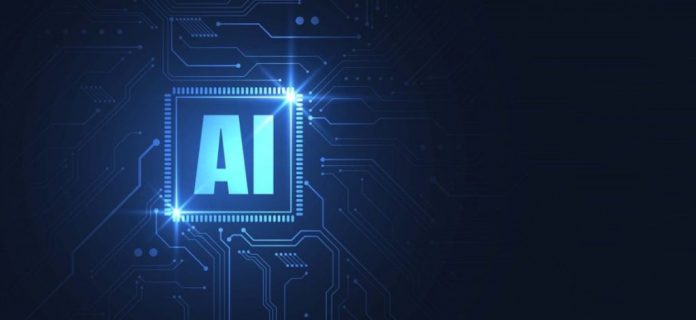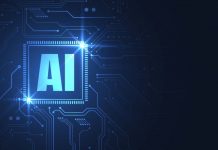This article has been written by Reshma Krishnani pursuing Diploma in Law Firm Practice: Research, Drafting, Briefing and Client Management and edited by Shashwat Kaushik.
This article has been published by Sneha Mahawar.
Table of Contents
Introduction
The father of AI, John McCarthy, coined the term artificial intelligence in 1956. He defined it as “It is the science and engineering of making intelligent machines, especially intelligent computer programs. It is related to the similar task of using computers to understand human intelligence, but AI does not have to confine itself to methods that are biologically observable.”
The Oxford Dictionary defines artificial intelligence as “the theory and development of computer systems able to perform tasks normally requiring human intelligence, such as visual perception, speech recognition, decision-making, and translation between languages.”
In simple words, we can say that AI is a branch of computer science that can think, understand, and give human-like responses. It is a creative, innovative, and intelligent human-made machine that acts smartly and replicates human behaviour. AI is such a powerful tool that can be used to automate tasks, improve decision-making, create new ideas, and understand information. What really makes AI so versatile is its ability to mimic human intelligence.
Revolution of AI
“The machines are coming and they will eat your job,” has been a popular refrain over the years. Over the years, with improvements in technology, this refrain has been true to an extent. Though with advancements in technology, productivity has improved, we cannot deny the fact that it has also replaced low-paid jobs with a great number of higher-paid jobs. This time, with the arrival of artificial intelligence, there are those who think it will be different.
AI seems to be the transformative technology that will fundamentally reshape economies. The influence of artificial intelligence is predicted to be as great as the Industrial Revolution. It has a lot of promises to make, not just in the legal field but in every field all over the world. AI will have a drastic effect on everyday life, comparable to the shift away from agricultural societies during the Industrial Revolution, according to a report by the McKinsey Global Institute. Researchers, economists, and even policymakers know that as AI continues to develop, it will cause massive disruption to labour markets, but they are fooling themselves if they think they have years to come up with a suitable response. In a recent World Economic Forum, Mihir Shukla, an entrepreneur, said, “People keep saying AI is coming but it is already here.”
A report by Ed Felton, Manav Raj, and Robert Seamans from Princeton University, the University of Pennsylvania, and New York University, respectively, pointed out ‘ChatGPT’ to be the most affected industry by AI and how artificial intelligence can eat up the jobs and will have a negative impact on our lives, as in the article by the New York Times headlined “ChatGPT could make these jobs obsolete: The Wolf is at the Door”. Economists at Goldman Sachs estimated that 44% of legal work could be automated. Another study suggests that 22% of lawyers’ jobs and 35% of law clerks’ jobs could be automated soon. That means automation and other new technology could eliminate as many as 800 million jobs by 2030.
Office and administrative support occupations, including secretaries, clerks, bill collectors, and office assistants, employ 1.3 million fewer workers than in 1990, according to an analysis by the Bureau of Labour Statistics. Over the years, artificial intelligence has gone through many cycles of hype, but even for sceptics, the release of OpenAI’s ChatGPT seems to mark a turning point.
From fiction to reality
From PCO (Public Call Office) to video calls, cycle to aeroplane, faxes to email, typewriters to computers, offline libraries to online databases, we have come a long way. All these things were earlier considered next to impossible, but with the human mind, anything and everything is possible. AI is nothing less than a dream that has come true. I will even say that no one has ever dreamt of what AI is doing now. Something impossible 20 years ago is now our normal routine.
DoNotPay, a legal services chatbot founded by Joshua Browder in 2015, has set up the world’s first robot lawyer powered by AI to defend a human in court in a speeding ticket case. The impact of AI will be gradual but significant. It is predicted that millions of workers will be affected, mostly white-collar and middle-class workers. Previously, machines replaced manual labour and low-skilled workers and now advances in AI will have a decent stab at people who are creative as well. Law, being a labour-intensive market, will have a major impact.
Geoffrey Hinton, the godfather and creator of artificial intelligence, termed AI ‘quite scary’ and warned it would become smarter than humans soon. He further stated that, as things are moving quite fast, we need to worry about that and take a step back. In a recent interview, Austin Carson, the founder of SeedAI, said, “If in six-months you are not completely freaked out, then I will buy you a dinner.”
All these statements by the creators of AI indicate that we ourselves are inviting danger into the world. We still possess time to think and analyse what results we are expecting from AI; will we receive the same in the future?
Future of lawyers in the age of AI
“If I was the parent of a law student, I would be concerned a bit,” says Todd Solomon, a partner at the law firm McDermott Will & Emery, based in Chicago. He added that there are already fewer opportunities for young lawyers to get trained, and adding AI to it will make the case worse. Young lawyers and freshmen are the ones who will be affected the most. Paralegal, due diligence, research and document review are typically key training ground for first-year associate lawyers, and AI-based products are already stepping in. CaseMine and CaseIQ are some of the very few examples. Though AI has already been part of the legal field (SCC, Manupatra, Casemine, CaseIQ, etc.), excessive use of anything affects growth and development.
AI is making people more dependent on technology, and this could have negative consequences in the long run. We may not see the full effects of this trend for a few years, but we are already starting to see some of the problems. For example, people who are constantly using AI-powered devices may become less creative and less independent.
The necessity of lawyers will be dramatically reduced if intelligent robots can perform fundamental legal functions, said John McGinnis and Russell Pearce.
AI is like a drug. It can be helpful in the short term, but it can also be addictive and harmful in the long term. It is important to use AI responsibly and to be aware of its potential negative impacts.
Potential implications of AI in legal domain
Automation of many activities has also replaced what was once performed by human force/workers. Though automation will not completely destroy the need for lawyers, it is considered that a large part of income and work will be generated and done by a small number of lawyers. This will eventually reduce employment among lawyers. For this not to happen, lawyers had to be extraordinary in their field. Now lawyers need to be more creative and hard working.
It is not necessary to always follow the trend. Every country should try to follow according to their nation’s requirements and needs and use their own brains before following any trend of the developed nation. We need to understand that we are still a developing nation and there are a lot of gaps and a lot of other areas that we need to tackle first.
AI can help some nations but not all. Many nations with huge populations that need labour-intensive work, such as India and Africa, will be badly affected, which will ultimately disbalance the economy.
People say AI is not something that has come now, but it has been in our lives for many years. The word is on trend these days, making people mysterious. But the key difference this time is that the owners of the new machine will gain the most benefit and enormous amounts of money from their innovation by hollowing out some sectors of the economy. But what we are not realising is that these technologies have earlier also taken jobs from many and if we continue to develop more and more such automated technology daily, it will eat up almost all of the human jobs.
Gone are the days when we waited for too long to think about implementation and to take steps. We need to pause, think and take action immediately.
Conclusion
Automation is disrupting the legal market and shifting legal work away from lawyers. William Henderson stated in one of the reports that lawyers are already being replaced in the name of a fundamental restructuring of the legal industry. And which has ultimately led lawyers to suffer the steepest job losses. Thus, from a far-sighted perspective, it looks like human intelligence cannot be replaced by artificial intelligence and in the future, it will help complement human curiosity to develop new innovations, which is just a mere dream.
AI is currently in its development stage and as the 21st century passes through rapid change, whether AI will make our lives easier or replace us completely is yet to be known.
References
- https://www-formal.stanford.edu/jmc/whatisai.pdf
- What the future of work will mean for jobs, skills, and wages: Jobs lost, jobs gained | McKinsey
- China’s future to AI and jobs: five big questions from Davos | Davos 2023 | The Guardian
- 2303.01157.pdf (arxiv.org)
- https://www.nytimes.com/2023/04/10/technology/ai-is-coming-for-lawyers-again.html
- https://www.technologyreview.com/2017/12/12/105002/lawyer-bots-are-shaking-up-jobs/
- https://www.theverge.com/2017/11/30/16719092/automation-robots-jobs-global-800-million-forecast
- https://www.ibm.com/topics/artificial-intelligence
- https://www.timesnownews.com/viral/historic-first-robot-lawyer-powered-by-ai-to-defend-a-human-in-court-in-a-speeding-ticket-case-article-96824480
- https://www.theguardian.com/technology/2023/feb/18/the-ai-industrial-revolution-puts-middle-class-workers-under-threat-this-time#:~:text=AI%20stands%20to%20be%20to,that%20will%20fundamentally%20reshape%20economies.
- https://www.bbc.com/news/world-us-canada-65452940
- https://papers.ssrn.com/sol3/papers.cfm?abstract_id=3286380
- Rise of the Robot Lawyers? by Milan Markovic :: SSRN
Students of Lawsikho courses regularly produce writing assignments and work on practical exercises as a part of their coursework and develop themselves in real-life practical skills.
LawSikho has created a telegram group for exchanging legal knowledge, referrals, and various opportunities. You can click on this link and join:
Follow us on Instagram and subscribe to our YouTube channel for more amazing legal content.
 Serato DJ Crack 2025Serato DJ PRO Crack
Serato DJ Crack 2025Serato DJ PRO Crack











 Allow notifications
Allow notifications


